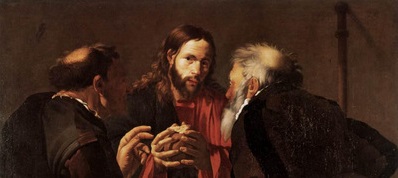
Ever
heard the names Andrew and John Murray?
Their father, Rev Andrew Murray was one of
several Scottish ministers who came to the Cape of Good Hope in the 19th
century and became ministers in the Dutch Reformed Church.
Why was a seminary established at
Stellenbosch in 1859?
Andrew and John Murray, who studied in both
Aberdeen, Scotland and Utrecht, Holland saw the need for an evangelical and
reformed seminary in light of the devastating liberalism in Holland at the
time. The latter under the leadership of the likes of the young W.C. Opzoomer
from Utrecht, rejected things like Jesus' virgin birth, his miracles, bodily
resurrection and uniqueness. Jesus was followed for being a good moral example.
Also, God had to be stripped of his personal and supernatural attributes, and
became the panentheist god constructed by Karl C.F. Krause, whom Opzoomer
followed.
It is always special for me when a British
journal publishes good and interesting theological stuff from South Africa.
Recently, the reformed Baptist journal Reformation
Today (available here at Tyndale House, Cambridge) published an
article by Rev Erroll Hulse in which he reflects on the 19th century revival in
South Africa in which the Murrays played an important part. Two excerpts:
"Some
pinpoint the beginning of the 1860 revival in the Cape to a prayer by Dr Andrew
Murray Junior. It was so powerful and moving that it lit fires in the hearts of
those present. They took these strong convictions home to share with others.
It is important to note that gifted-pastor
preachers were given to the churches in the Cape .
The best known of these was Andrew Murray Senior. For over thirty years he had
prayed specifically every Saturday night for revival. He had two sons, Andrew
and John, both of whom became well-known pastors".
The discussion of the 1902 revival in the Prisoner of War Camps is
absolutely amazing:
"After the Boer War
(1899-1902) the Afrikaners found themselves in a depressed and poverty-stricken
state. They had lost their farms and suffered terrible loss of life in the
notorious prisoner of war camps. 26,400 women and children died in those camps
through starvation and epidemics.
 During the Boer War
which eventually consisted of 400,000 British soldiers seeking to overcome
about 80,000 farmers who were skilled marksmen. Captured Boer soldiers were
exiled to prisoner of war camps in Ceylon, India, St Helena and Bermuda. It was
there that they experienced very remarkable and powerful spiritual revivals.
During the Boer War
which eventually consisted of 400,000 British soldiers seeking to overcome
about 80,000 farmers who were skilled marksmen. Captured Boer soldiers were
exiled to prisoner of war camps in Ceylon, India, St Helena and Bermuda. It was
there that they experienced very remarkable and powerful spiritual revivals.
They did not enjoy
telephone or e-mail communication. Research needs to be done to establish the
details of these revivals. We do however know how the revival began in Ceylon.
Two prisoners engaged in a quarrel. The British encouraged chaplains to
minister to the prisoners and so it was that the resident minister exhorted the
two unhappy prisoners to go out to the field that they used for rugby football
and there pray together. They heeded this exhortation and came back later with
the testimony that the Holy Spirit had fallen on them. The next evening four
returned to that spot to pray together. They came back with the same report.
This proved to be the beginning of the revival with an ever increasing nightly
prayer meeting. When the war ended, it was calculated that 2,000 out of the
5,000 were committed to Christ".
So what happened after
the war?
"After the war the
seminaries were filled with men who dedicated themselves to the ministry and to
missions. A mighty missionary movement spread across Africa. Throughout her history a battle with liberalism has taken
place in the NG Kerk. Since the 1950s a downgrade has taken place. The
spiritual decline has been catastrophic. Unregenerate liberal professors have
been allowed to destroy the faith of the seminary students.
We must pray that the
Lord will give the gift of faithful leaders again. And we must pray that the
Afrikaans believers will study their history and again be blessed with
spiritual awakening".
http://www.reformation-today.org/rtindex.htm
